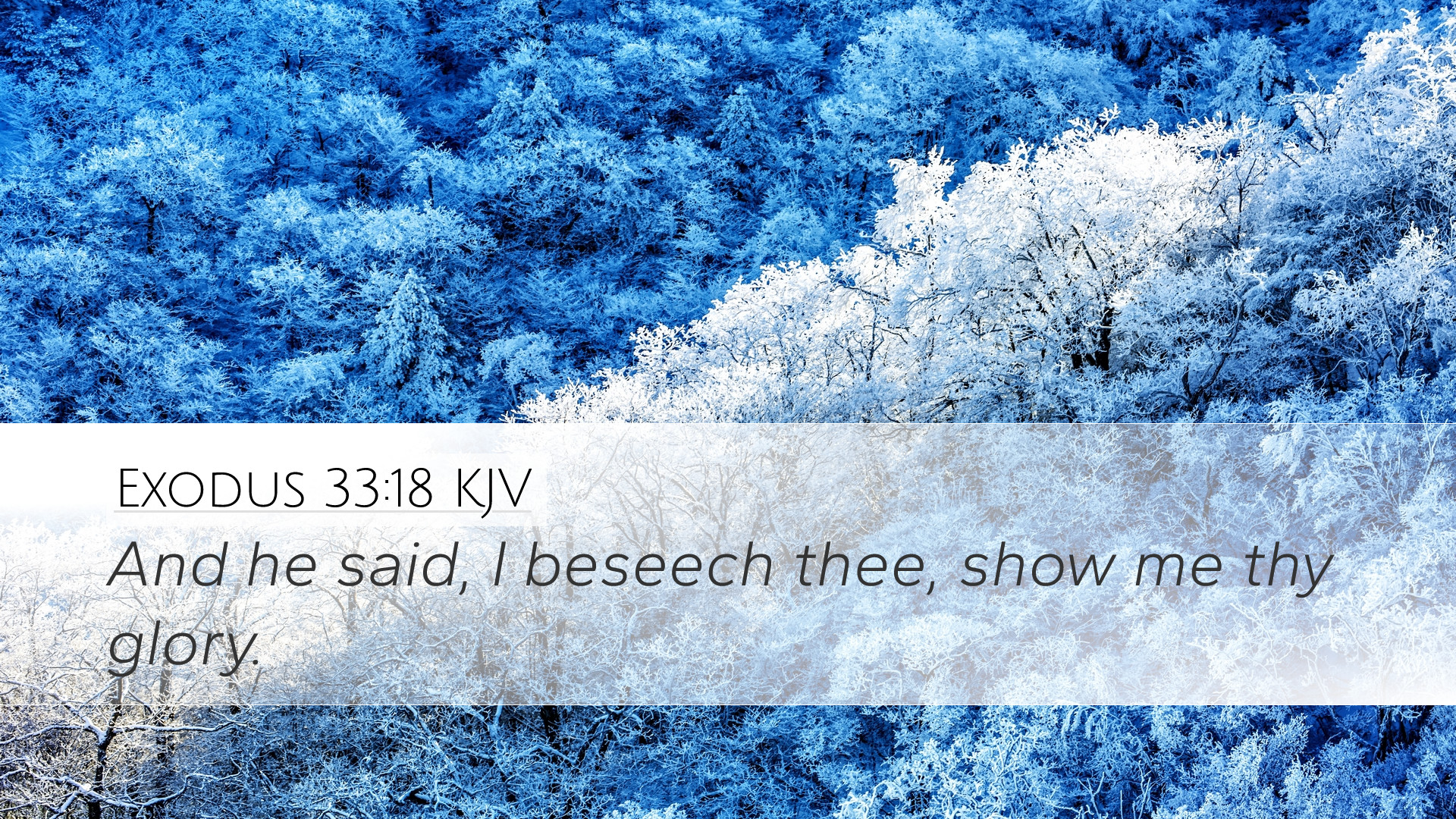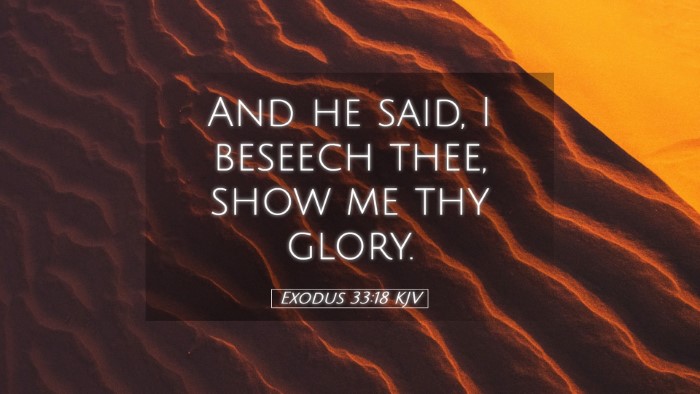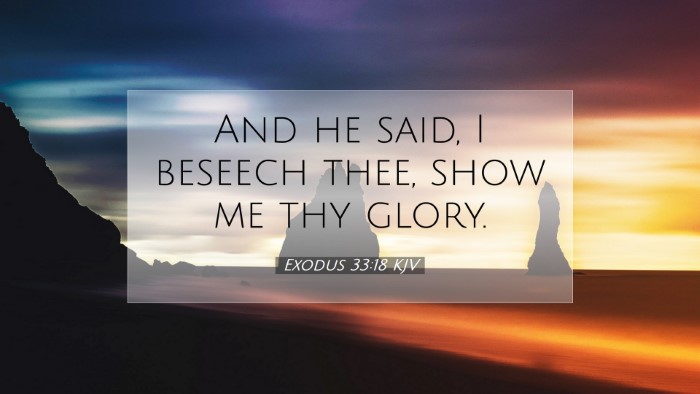Commentary on Exodus 33:18
Verse: Exodus 33:18
“And he said, I beseech thee, show me thy glory.”
Contextual Background
In Exodus 33, we find Moses in close communion with God after the events of the golden calf, whereby Israel had sinned grievously against the Lord. The chapter reveals a longing for divine presence and guidance amidst the people’s transgressions. Moses' request in verse 18 is profound; it arises from a desire for a deeper understanding of God's nature and character.
Moses’ Request for Glory
Moses' plea to “show me thy glory” can be interpreted in various dimensions:
- Desire for Divine Revelation: Moses seeks an encounter that transcends ordinary experience, desiring a revelation that confirms God's faithfulness and power.
- Longing for Intimacy: His request demonstrates an intense desire for relationship and connection with God, indicating that knowledge of God’s glory is paramount to spiritual growth.
- A Prayer for Assurance: Given the significant moral failures of the people, Moses's request may also reflect an urgent need for reassurance of God’s presence and guidance as they journey toward the Promised Land.
Insights from Matthew Henry
Matthew Henry, in his commentary, underscores that Moses, despite having received the Law and witnessed numerous miracles, still seeks a deeper understanding of God's glory. He highlights that such longing is not merely for miraculous signs but for a manifestation of God's character and essence. Henry points out that this desire is prompted by a recognition of the people’s desperate need for divine grace and presence, emphasizing the importance of experiencing God personally.
Views from Albert Barnes
Albert Barnes elaborates on the significance of Moses asking for a direct view of God's glory. He explains that this request indicates a desire for more than just the manifestations of God’s power; it is about understanding His moral perfections. Barnes notes that this plea reflects a heart yearning to know God's love, mercy, and righteousness in a way that impacts his leadership and the community he serves. He encourages readers to consider their own desires in seeking God's character as foundational to spiritual strength.
Reflections by Adam Clarke
Adam Clarke provides a detailed exegesis of the text, noting that Moses’s request for God’s glory is a profound one. Clarke mentions that while God’s face cannot be seen by man (Exodus 33:20), this does not negate the potential for divine revelation. He emphasizes that God's glory is revealed in His attributes and the ways in which He interacts with humanity. Clarke points out that, in response to Moses' request, God reveals Himself partially, indicating that understanding God's nature is a gradual process requiring both revelation and personal transformation.
Theological Implications
The request to see God’s glory raises significant theological questions:
- Immanence vs. Transcendence: This verse would initiate dialogue about the balance between God's immanent presence in the world and His transcendent majesty that is beyond human comprehension.
- The Nature of Divine Revelation: It challenges individuals to contemplate how God reveals Himself through scripture, creation, and personal experience, illustrating the necessity of seeking deeper knowledge of God.
- Human Response to Divine Holiness: The request illustrates humanity's intrinsic desire to connect with the divine, invoking themes of worship, reverence, and the need for repentance in the wake of sin.
Practical Application
This verse invites reflection on practical aspects for believers today:
- Pursuit of God: Like Moses, believers are encouraged to actively seek a deeper relationship with God, which can lead to transformative experiences in faith.
- Leadership and Spiritual Authority: Pastors and leaders can reflect on the necessity of encountering God in their ministry, ensuring that their leadership is rooted in divine guidance and revelation.
- Community Impact: The collective experience of God’s glory can foster unity and transformation within communities, emphasizing the role of corporate prayer and seeking God together.
Conclusion
Exodus 33:18 serves as a poignant reminder of the heart’s longing for divine revelation. Moses’ request transcends his historical context, resonating with contemporary believers who find themselves yearning for a true glimpse of God's glory amid the challenges of life. Through the combined insights of Matthew Henry, Albert Barnes, and Adam Clarke, we see that this ancient text continues to call us to seek a more profound understanding and experience of God’s character, encouraging ongoing reflection, prayer, and engagement with the divine.


